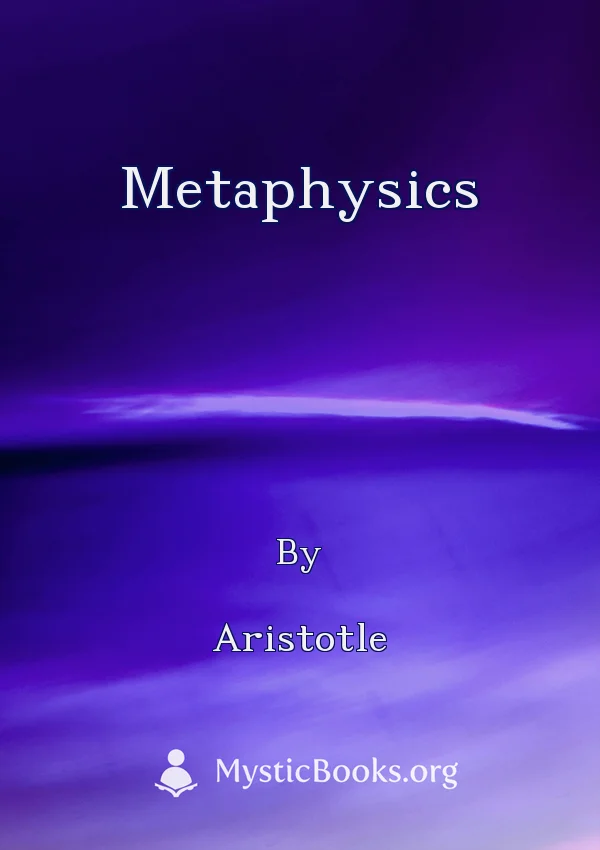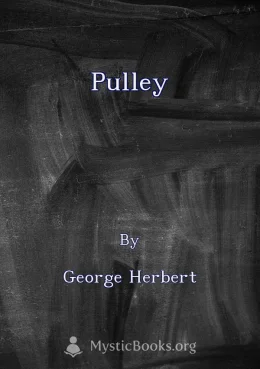
Metaphysics
by Aristotle
'Metaphysics' Summary
Metaphysics, written by Aristotle, is a seminal work in philosophy that explores the fundamental nature of reality and existence. It investigates the concept of substance as the primary constituent of all things, distinguishing it from accidents, which are non-essential properties that can change over time. Aristotle also examines the relationship between substance and accidents, arguing that substances are the underlying entities that persist through change, while accidents are dependent on substances for their existence. The book further delves into the concept of causation, arguing that all change must have a cause, ultimately leading to a prime mover or God as the uncaused cause of all existence. Aristotle also explores the nature of change, distinguishing between substantial change, where an entity changes its essential nature, and accidental change, where an entity changes its non-essential properties. Metaphysics also introduces the concept of categories, which are the fundamental ways in which we can classify and understand reality. These categories, including substance, quantity, quality, and relation, provide a framework for organizing our knowledge of the world. By examining these fundamental concepts, Metaphysics provides a comprehensive and systematic account of the nature of reality and existence, laying the groundwork for much of Western philosophy.Book Details
Language
EnglishOriginal Language
Published In
Genre/Category
Tags/Keywords
Authors

Aristotle
Greece
Aristotle (384–322 BC) was a Greek philosopher and polymath during the Classical period in Ancient Greece. Taught by Plato, he was the founder of the Lyceum, the Peripatetic school of philosophy...
Books by AristotleDownload eBooks
Listen/Download Audiobook
- Select Speed
Related books

The Spirits' Book by Allan Kardec
The Spirits' Book is part of the Spiritist Codification, and is regarded as one of the five fundamental works on Spiritism. It was published by the Fr...

Aufzeichnungen des Malte Laurids Brigge by Rainer Maria Rilke
Malte Laurids Brigge, a young Danish poet, arrives in Paris at the turn of the 20th century. As he wanders the city, he records his observations and r...

Faust: Der Tragödie erster Teil by Johann Wolfgang von Goethe
Der erste Teil der Tragödie Faust, erstmals erschienen 1808, gilt als das bedeutendste und meistzitierte Werk der deutschen Literatur. Die Handlung sp...

Pulley by George Herbert
LibriVox volunteers bring you 11 different recordings of The Pulley by George Herbert. This was the weekly poetry project for the week of June 15th, 2...

The Monadology by Gottfried Wilhelm Leibniz
The Monadology is one of Gottfried Leibniz's best known works of his later philosophy. It is a short text which presents, in some 90 paragraphs, a met...

Summa Theologica - 04 Pars Prima, On Man by Saint Thomas Aquinas
This section, Part Five of the *Summa Theologica*, delves into the nature of humanity. Aquinas explores the soul's essence, its relation to the body,...

Babel by Louis Couperus
Babel is a fantastical novel by Louis Couperus that explores themes of imagination, ambition, and the limits of human endeavor. The novel follows the...

Selected Poems by George Herbert
This collection of poems explores the intricate journey of an individual's relationship with God. Herbert's work delves into the personal struggles a...

Bible (Fillion) 18: Livre de Job (Chapitres sélectionnés) by Fillion Bible
Le Livre de Job est une œuvre majeure de la littérature biblique. Il explore le thème central du mal et de la souffrance humaine, interrogeant la just...

Tiger by William Blake
LibriVox volunteers bring you twelve different recordings of The Tiger, by William Blake. This was the weekly poetry project for the week of December...
Reviews for Metaphysics
No reviews posted or approved, yet...